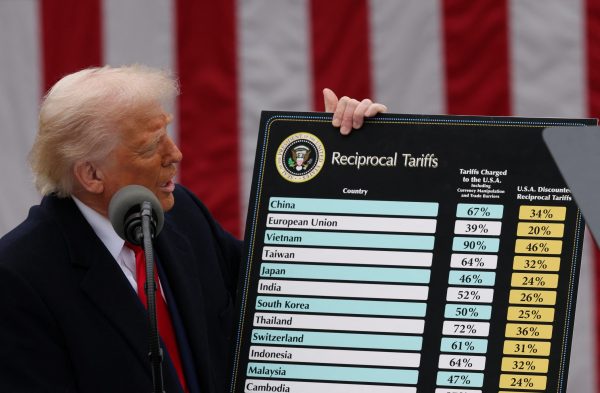
The government faces significant challenges in the economy in the coming months, as the continuing pandemic in high tones, as well as the growing dynamics of the energy crisis, create multiple problems. The government’s financial staff has to solve a number of difficult equations, as – despite the rumors to the contrary – recourse to the polls seems possible.
At the same time, there are positive “signals”, while the government’s plan is expected to be restructured within the next month, when the final data for 2021 GDP will be announced. If the recent estimates of the Commission are confirmed, which set the bar at 8.5%, it means that the Greek economy last year ran faster than the estimates of the Ministry of Finance, which stood at 7%. This translates into an additional space given by the strongest growth of last year, as the state budget of 2022 was based on the 6.9% growth forecast for 2021 and a nominal GDP of about 178 billion euros, so it gives over 2 billion higher nominal GDP than forecasts. Beyond that, there are other important issues.
The size of inflation is crucial. The European Commission estimated in the fall that in 2022 it will reach only 1%, while now it “sees” that it will be more than triple at 3.1%. On Tuesday, February 15, there will be an announcement by ELSTAT regarding the size of inflation in January. Many analysts estimate that it will be around 6%, since Eurostat preliminary data also mentioned 5.5%.
Problem in consumption
In addition to high prices, the decline in consumption raises concerns. Preliminary data show that there is a 7% drop in supermarket sales volume in January 2022, which is a negative record for many years, showing that consumers are now making cuts even in basic food items. According to market participants, the forecasts of the competent analysts show that there is expected to be a drop in sales – for the whole of the current year – which will reach 5%.
At the same time, in retail, there was a reduction in turnover – and even in a period of discounts – which reached 50% for small and medium-sized enterprises, while in large chains, the reduction was in the range of 30% -35%. The risks to the economy and the climate of uncertainty created by the ignition of accuracy are reflected in the IOBE surveys, according to which 59% of consumers predicted that they would spend less or much less.
Citizen debts are on the rise
Beyond that, it is a fact that every month more and more overdue debts are accumulating in the tax offices with the government not proceeding with the necessary “haircut” of debts that are urgently requested by individuals and small and medium enterprises
Within a month, overdue debts increased by 1.2 billion euros, while in December last year they amounted to 111.4 billion euros from 110.2 billion euros in November of the same year, with debtors close to 4 million tax registrtaion numbers.
Read also: Commission report: Does the 2021 growth review allow leeway for benefits?
For 2021, the new arrears reached 6.3 billion euros, while if we add to this the corresponding arrears of 2020 which was 7.13 billion euros, then one can easily understand the extent of the problem as within 2 years fresh overdue debts to the State of over 13.4 billion euros have emerged.
Alarm over revenues
At the same time, January revenue seems to have moved away from targets. The first data, which is expected to be announced on Tuesday, February 15, will reportedly show a lag behind the targets, with the taxes that entered the fund being less than forecast.
The government attributes this problem to the Elpida severe weather front and the restrictions due to the Omicron variant, but also the extension of the payment of road use fees until February 28.
The bad weather shut consumers in their homes, on the other hand, postponed the deadline for payment of VAT in January to February 4, according to officials of the government’s financial staff. The budget also had a negative impact due to the restrictions due to Omicron, with restaurants operating part-time and entertainment venues shutting down in some cases.
The management of the Recovery Fund
A big issue for the government is the management of the Recovery Fund money. Strong concerns are expressed, however, about the ability of the State to finalize the tender procedures required to utilize the approximately 32 billion euros.
It is noteworthy that the BoG states in a report: “An additional significant challenge concerns the ability of the public and private sectors to fully and timely absorb the available financial resources from the European recovery instrument in the period 2021-2026 and from the NSRF in the period 2021 -2027 ».
Some political analysts say the Commission is concerned that this year may be an election year. Even if the elections are held in 2023, the government’s moves give off a “scent” of a pre-election period.
In any case, the government has the obligation to contract – within 2022 – projects, which reach 7.5 billion euros, with whatever that entails.
The investment grade and the “freezing” of the finance ministry
It is not just a coincidence that while the Minister of Finance, Christos Staikouras, maintained – on the basis of scenarios – as a possibility the reduction – even temporarily – of VAT on food, in the end, he “laid it to rest” a few days ago. At the same time, some economic analysts estimate that the Minister of Finance was forced to “freeze” the scenarios, due to the messages coming from the rise of Greek bonds. Greece looks forward to the return of the investment status regime in 2023, something that will be achieved if the country remains on a reform trajectory, as reported by Bloomberg. This perspective seems to have led Mr. Staikouras to stop any discussion of additional positive measures, in addition to the return of an allowance, during Easter, for vulnerable households.
After all, according to the data so far, the European Central Bank is expected to suspend the emergency bond market program due to the pandemic (PEPP) in March 2022, at a time when Greece is still far from gaining the investment grade.
High deficits, with rising interest rates and the IMF!
Recommendations to the heavily indebted eurozone countries, with Greece as the first obvious recipient, to return to fiscal consolidation as soon as the recovery stabilizes, the IMF said in a report, at a time when Greek bond yields and spreads were rising sharply, in view of the ECB’s intention to suspend the PEPP pandemic financing program. At the same time, the Greek 10-year bond “rose” in the last few days by about 5 times compared to 6 months ago.
At the same time, the Greek debt is around 200%, while the yield on the Greek 10-year bond has increased 5 times compared to 6 months ago. The above in combination with the high primary deficit in 2021 (10.985 billion euros) and the trade balance deficit (24.295 billion euros last year) evoke strong memories of the memoranda.
The issue of unemployment
Unemployment is a big problem, which is much bigger than what ELSTAT records. The recording of the latest data of unemployment in November when ELSTAT identified the unemployed at 624,858 people and OAED recorded in its registers 1,091,618 people.
Essentially, ELSTAT registers only 57% of the unemployed who are registered with OAED, while it does not record 43% of the unemployed (ie 466,760 people) who – at the same time – declare to OAED that they are out of work.
This raises huge questions for the credibility of the data, as well as for the effectiveness of the employment policies, which are formulated on the basis of the specific data.
Poverty
At the same time, the situation in society is particularly problematic, at a time when the “rally” of prices is being driven from one record to another, gnawing at the incomes of the citizens. According to the data of the Income and Living Conditions Survey of Households 2020 of ELSTAT, the population of the country at risk of poverty or social exclusion amounts to 28.9% (3,043,869 people).
The poverty line is € 5,266 per year per single-person household and € 11,059 for households with two adults and two dependent children under the age of 14.
For the year 2020, the depth (gap) of poverty risk amounted to 26.9% of the poverty risk threshold, recording an increase compared to the previous year. Based on this percentage, it is estimated that 50% of the poor have an income less than 73.1% of the poverty line.
Latest News

Trump Tariffs Jeopardize Growth: Piraeus Chamber of Commerce
The tariffs, aimed at reducing the U.S. trade deficit, are expected to have both direct and indirect effects on the European economy

EU Condemns Trump Tariffs, Prepares to Retaliate
As tensions escalate, the EU is expected to continue negotiations with Washington while preparing for potential economic retaliation.

The Likely Impact of Trump Tariffs on Europe and Greece
Trump tariffs are expected to negatively affect economic growth in the Eurozone while Greece's exports could take a hit.

Motor Oil Results for 2024: Adjusted EBITDA of 995 mln€; Proposed Dividend of 1.4€ Per Share
Adjusted EBITDA for 2024 was down 33% yoy. The adjusted profit after tax for 2024 stood at 504 million euros, a 43% decrease from the previous year

Cost of Living: Why Greece’s 3% Inflation Is Raising Alarm
Greece appears to be in a more difficult position when it comes to price hikes, just as we enter the era of Trump’s tariffs.

Fitch Ratings Upgrades the Four Greek Systemic Banks
NBG’s upgrade reflects the bank’s ongoing improvements in its credit profile, Fitch notes in its report, including strong profitability, a reduction in non-performing exposures (NPEs), and lower credit losses

Trump to Announce Sweeping New Tariffs Wednesday, Global Retaliation Expected
With Trump's announcement just hours away, markets, businesses, and foreign governments are bracing for the fallout of one of the most aggressive shifts in U.S. trade policy in decades.

Inflation in Greece at 3.1% in March, Eurostat Reports
Average inflation in the eurozone settled at 2.2%, compared to 2.3% in February

Greece’s Unemployment Rate Drops to 8.6% in February
Despite the overall decline, unemployment remains higher among women and young people.

Jerry Kalogiratos Highlights Key Role of Energy Transition and Data Demand in LNG Outlook
Energy transition and the prospects of LNG were discussed at Capital Link’s 19th Annual International Maritime Forum, during a panel discussion with Jerry Kalogiratos (Capital Clean Energy Carriers Corp.)
























![ΕΛΣΤΑΤ: Αυξήθηκε η οικοδομική δραστηριότητα κατά 15,6% το Δεκέμβριο [πίνακες]](https://www.ot.gr/wp-content/uploads/2025/03/DSC9655-2-1024x569-1-90x90.jpg)

















 Αριθμός Πιστοποίησης
Αριθμός Πιστοποίησης